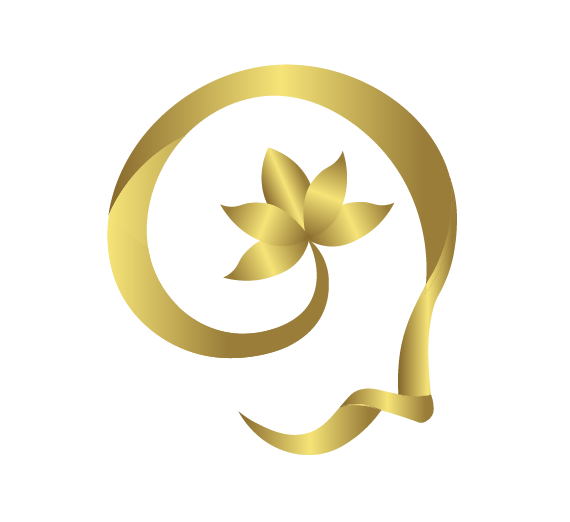
The mind of an individual is constantly searching for stimulus. It is always waiting to get lost in the waves of thoughts. Its natural tendency is to stay distracted, involved and to believe in something. It holds onto the thing that it looks at and plays a vital role in building our thoughts, ideas, perceptions, belief systems and so on.
We may often believe that it is our situation, our state, our compulsions, or our responsibilities that bind us, that become a cause of pain for us. However, it is actually our ever-pertaining mind that pulsates and creates states of agitation within our being. The place of our being does not matter, wherever we go, our mind goes with us. Our state, as a result, depends on our state of mind.
According to Patanjali, an ancient Indian sage and scholar, the mind can be explained as its modifications. These modifications can be painful or non-painful based on their nature. The painful modifications are fuelled by ignorance, unhappiness, turmoil and outward movement of the mind. The positive and non-painful modifications arise when the mind turns within and becomes one with the Self.
It is bringing stillness to these modifications of the mind that opens the pathway to the purest form of Self. Such a stage is reached only when we shed our current thought patterns, and invite a state of mind that is stable, still and seeking. Such a mind does not wander, does not believe in hear-say, does not give in to the externalities of the world. It does not give in to the modifications of the mind that may be painful. Let us learn about the modifications of the mind in detail.
Each modification can be explained as a thought wave in the mind that rises to cause stimulation within. There are five modifications of the mind as explained by Patanjali :
- Right Perception: Right Perception further has three subdivisions
Direct Knowledge: This is direct perception. It correlates to understanding things after experiencing them, looking at them and directly coming in contact with them. Right knowledge about anything places us in a spot of confirmation. When you see someone in front of you, it is from this right knowledge and direct experience that you can judge whether a person is a man or a woman, if they are sitting or standing, if they are talking or are quiet. Right knowledge and direct experience grant you a sense of confidence and confirmation about your belief in any experience.
Indirect Knowledge: This is the indirect perception of the Truth and can also be understood as an deduction or inference. Indirect knowledge is not experienced but is attained by following, listening, understanding, or viewing something on our own discretion. For example, if you see people running out of a building, you are likely to deduce it as a sign of an emergency based on your guess, assumption and personal discretion. This is how our experiences allow us to infer and construct a belief system in our lives as well. We may look at people posting on social media and infer it as indirect knowledge.
Correct Knowledge: This is the confirmed perception based on the ideologies of people we trust, their testimonies and experiences.Correct knowledge stands for the knowledge that is backed by scriptures, books and experiences of multiple people who are learned in their fields. We may believe in a number of things, may experience them differently, may even have different perceptions about these experiences. Seeking the correct knowledge allows us to come in contact with how things “are” and accept them as the real truth by confirming the experience of others through our own experience. For example : When we hire a personal trainer, we follow the exercise regime that he prescribes and go by the meal plans that he gives because we trust his experience. Once we see the results of his advice on our body, we believe his ideology and accept his knowledge as the true knowledge.
- Wrong Perception : According to Patanjali, “Wrong perception is a false conception of something whose real form does not correspond to that conception”. It is the wrong knowledge that makes us structure a part of our belief systems. This modification of the mind conditions us and leads us to states of doubt, uncertainty, questioning, duality, discriminations and so on.
For instance: Say you are taking a walk at night and come across an object which you may think is a snake, react to it with fear, however, this object in reality was a rope. In this case, it was your wrong knowledge that led you to jump thinking that the rope was a snake. Similarly in life, we assume various things based on which we set our belief systems and react in a certain way, in the way we reacted to rope thinking it was the snake. This modification of the mind limits us from believing in the infinite possibility of things and can also ingrain a sense of fear based on our conditionings.
- Fantasy: When an image is conjured in our mind by words but does not have any substance behind it, it is a fantasy. It is like day dreaming.The tendency of the mind is to wander, even in directions that can be unlikely, unreal and only imaginary. According to scriptures, “Fantasy is the supporter of wrong knowledge”. It leads one to create narratives around our wrong imaginations and conditionings. One might even start obsessing over a particular thing happening in a particular way. For instance, fantasizing about marrying a married film star and obsessing over the thought is actually an unlikely modification of the mind.
- State of Sleep: Sleep is the modification of the mind in the state of absence of content in the mind. It is the time when the mind chooses to be ignorant and separates itself from the reality or the Truth. Thus, for one to be in the state of “Sleep”, he or she does not really have to be sleeping. For example: Even in a lecture,if you are not present and disconnected with the content, your mind can wander away from the topic in a completely different direction. In this case you are awake, but are not present , thus your awareness is at stake. It is this modification of the mind that prevents us from experiencing every moment and disallows us from living our life to the fullest.
- Memory: Memory is another modification of the mind which is also an impression of all other modifications. It is a byproduct of when, the above four modifications are not allowed to escape the realm of the mind. (explain in terms of other four modifications) One may be happy and full of joy on a regular day, and suddenly remember a “memory” from a bad breakup. Suddenly they are dipped in agony as they reminisce about the thought that was created in the mind. A simple memory changes their entire day in an opposite direction. In this context, memory is also called the secretary of the four modifications; no matter where you are, it has the ability to open files and show you what took place in the past. Even though memory is the most important part of our existence, it allows you to remember things, good times of life, important dates and details of the past. It is the place that stores our Karma, our emotions, feelings and our states of mind. However, it can also be painful as it keeps you conjoined to the past, and can potentially prevent you from living your best life in the present.
In conclusion, you must realise that you are tortured not by the mind but its modifications. It is the modifications of the mind that continue to cause afflictions to your present moment. As long as we function according to the modification, we act according to the “feelings” of the mind, we do everything according to the mental tendencies. This also becomes a reason for our pain. According to Patanjali, there is no suffering in God’s creation; suffering occurs only when we act according to the modifications of the mind. Thus, we must continue working towards stilling the mind and gaining control over its modifications.

